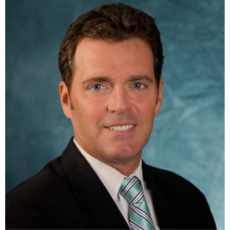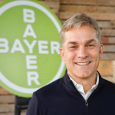Has much changed since the beginning of your career in DSM in the way nutrition is understood?
DSM has transformed immensely, from a coal mining company in the Netherlands 120 years ago, to a chemicals company 19 years ago when I joined them, and now we have transformed into a nutrition company. I like to say that our acronym which once stood for “Dutch State Mines” now stands for ‘Do Something Meaningful’. The nutritional products industry continues to evolve, with the pandemic creating a renewed sense of urgency with respect to immunity and public health, and a focus on ensuring quality and reliable ingredients available through secure supply chains.
How has this shift translated into the way you manufacture your products, and do you believe that biomanufacturing will have a key role to play in meeting the growing global food demand?
We primarily manufacture through two different processes - one is chemical synthesis and the other is fermentation. The latter is one of the more exciting areas for DSM, because I think we will see the world move more and more towards fermentation, or bio-manufacturing where you apply biotechnology and genetically modify a microorganism to turn it into the engine of production. For example, in South Carolina we have a large-scale manufacturing plant that uses fermentation as its production vehicle. We found a microorganism, algae, under a rock in a river in Oregon and, with some tweaking, we got it to produce very highly concentrated DHA/EPA Omega-3 oil. That product finds itself today in nearly all of the infant formula produced in the US, enabling a secure supply chain.
I do believe that biomanufacturing and genetic engineering are the future of the production of both food and feed ingredients. Even on a policy level, President Biden last year through an Executive Order, called for a move towards biomanufacturing in the US. I firmly believe that in order to meet the growing demand for a sustainable animal protein in particular, we are going to have to spend much more time figuring out new ways to make feed ingredients through biomanufacturing. DSM is an early adopter in this space, and we have been focused heavily on animal nutrition projects to advance it. For example, we signed a strategic alliance with Elanco last April, who will build a manufacturing plant and have distribution rights for our product called Bovaer, a feed ingredient that can reduce enteric methane emissions from ruminants (cows/cattle) by up to 90%. Moreover, it has no impact on the meat or milk of the animal. We are most excited about this partnership with Elanco and generally welcoming legislative initiatives that will allow farmers to monetize such methane emissions reductions.
Animal farming has been plagued by controversial practices, notably the overuse of antibiotics. Do you think we are close to overcoming these issues?
The world’s population is certainly growing, but it is also growing richer. As people have more disposable income, they will seek to eat more animal protein. History bears witness to such trends, which means the focus needs to be on producing animal protein more sustainably.

Part of that movement to sustainability is ensuring we use less antibiotics and create more antimicrobial products and practices. One way to do that is through appropriate nutrition of animals - if they get good nutrition, they will be healthier and need less antibiotics. We are already seeing that trend, notably in the poultry industry and many other animal protein production operations where antibiotics are not used, and medicaments are used much less.
These trends will continue through the adoption of new and evolving technology, certainly by AI. We have made developments in the area of ‘precision nutrition’, which is one of the most exciting aspects of what we do today. This application will only become more powerful as we generate more data, biomarkers and algorithms.
Our ‘We Make It Possible’ animal nutrition sustainability initiative is in fact a call to action. We are inviting our customers, stakeholders and government to work with us to produce more sustainable animal protein.
Are you presently faced with supply chain challenges, for instance, due to the war in Ukraine?
First and foremost, we ensured that our colleagues and their families in Ukraine are and remain safe. We subsequently have donated a considerable amount of money, much of it raised by our employees, to support UN World Food Programme relief efforts in Ukraine. Concerning the business, the impacts of the war were most profound in the escalating energy costs in Europe. We have significant amounts of manufacturing operations in the Rhine valley and we are still working our way through the challenge that rapidly increased energy costs have had on our operations. I do think that the geopolitical challenges that we are witnessing are causing many multinational companies to rethink their supply chains, looking for ways to shorten them and maintain agility and predictability. I therefore think that we are moving from the very open, globalized world of the past 30 years to a much more pragmatic model of regionalization. Regionalization gives you protection not only against supply chain disturbances, but also currency and climate risks while enabling access to markets at sufficient scale. The decade ahead will prove to be an interesting one.
What are your key objectives for the next couple of years?
Within DSM we have a strategy that is called ‘Improve, Enable and Advocate. ‘Improve’ is about improving the sustainability of our own operations - in the United States, for example, we operate with 100% renewable electricity. We also want to enable our customers to do the same through many different projects, such as Bovaer and Veramaris. Finally, we use our modest political clout to advocate for the changes we need to see in governments specifically with respect to climate mitigation, carbon pricing and nutrition. We are very proactive in that sense.





